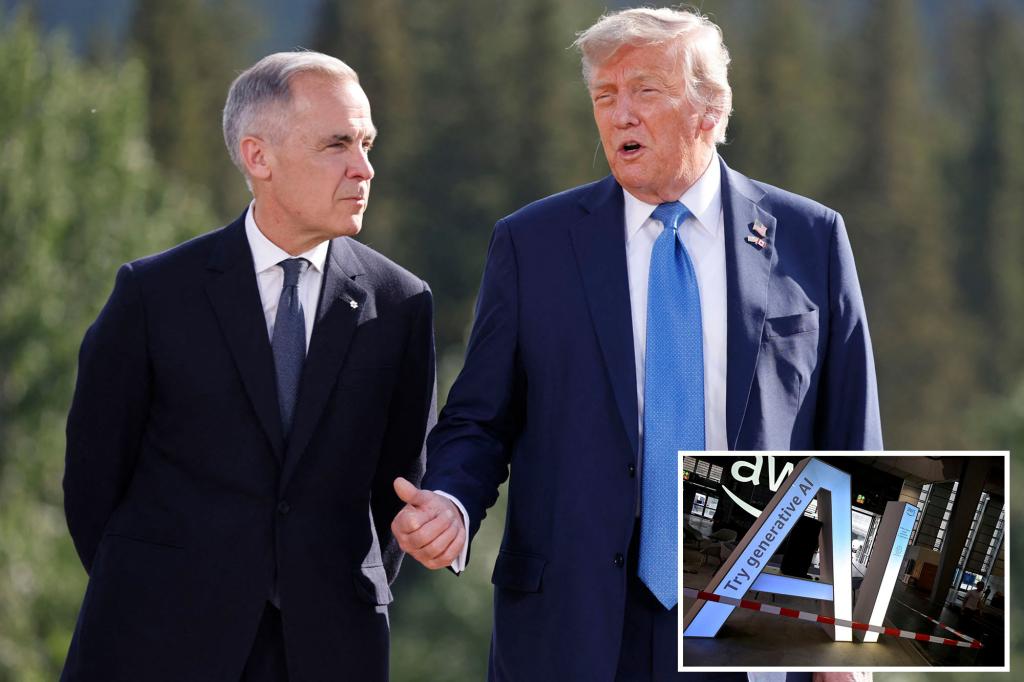
Canada has unexpectedly abandoned its plan to implement a digital services tax on American technology firms, just days after former U.S. President Donald Trump criticized the proposal as a “foolish” and “direct attack” on the United States. The decision was made by Canadian Prime Minister Mark Carney mere hours before the tax was set to take effect, as Canada seeks to revive stalled trade negotiations with the U.S. before a critical July 21 deadline.
The proposed tax would have imposed a 3% levy on revenue generated by companies such as Amazon, Google, Meta, Uber, and Airbnb from Canadian users. The move was met with strong opposition from Trump, who promptly halted trade talks last Friday, warning of potential tariffs on Canadian goods.
Background and Reaction
The digital services tax was initially announced in 2020 as a measure to ensure that large technology companies operating in Canada would contribute taxes on revenues earned from Canadian consumers. This tax was set to be applied retroactively, potentially resulting in a $2 billion bill for the affected companies by the end of the month.
Trump, taking to his social media platform Truth Social, condemned the tax, stating,
“We have just been informed that Canada … has just announced that they are putting a Digital Services Tax on our American Technology Companies, which is a direct and blatant attack on our Country.”
He further accused Canada of mimicking the European Union’s similar tax measures and announced the immediate termination of trade discussions with Canada.
Diplomatic Efforts and Economic Implications
Following the heated exchange, Carney’s office confirmed that he engaged in a conversation with Trump on Sunday night, resulting in the decision to suspend the tax. This move aims to facilitate the resumption of trade negotiations between the two nations. Finance Minister François-Philippe Champagne is now tasked with introducing legislation to officially rescind the tax, according to a statement from Canada’s finance ministry.
The ministry’s statement highlighted,
“The DST was announced in 2020 to address the fact that many large technology companies operating in Canada may not otherwise pay tax on revenues generated from Canadians. Canada’s preference has always been a multilateral agreement related to digital services taxation.”
Historical Context and Expert Opinions
This development is reminiscent of previous trade tensions between the U.S. and Canada, particularly during the renegotiation of the North American Free Trade Agreement (NAFTA), which led to the United States-Mexico-Canada Agreement (USMCA) in 2020. Experts suggest that the current situation underscores the delicate balance of economic power and the importance of diplomatic negotiation in international trade relations.
Economists warn that imposing tariffs could have significant repercussions for both economies, potentially leading to increased prices for consumers and strained business operations. “Trade wars rarely have winners,” noted Dr. Emily Chen, a trade policy expert at the University of Toronto. “Both countries have much to gain from cooperation and much to lose from conflict.”
Looking Ahead
As the July 21 deadline approaches, both nations are under pressure to reach a new economic agreement. Carney and Trump had previously agreed to finalize a deal within 30 days following their meeting at the G7 summit in mid-June. The Canadian government remains hopeful that by rescinding the digital services tax, they can pave the way for successful trade negotiations.
Meanwhile, Canadian businesses have been urged to support local products amidst the ongoing trade tensions. The outcome of these negotiations will likely have lasting implications for the economic relationship between Canada and the United States.
The world watches closely as these two economic giants navigate their complex trade dynamics, with the hope that diplomacy will prevail over discord.







